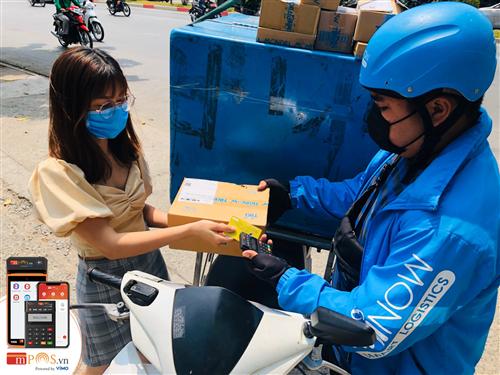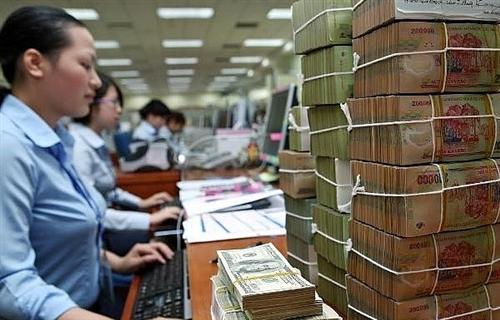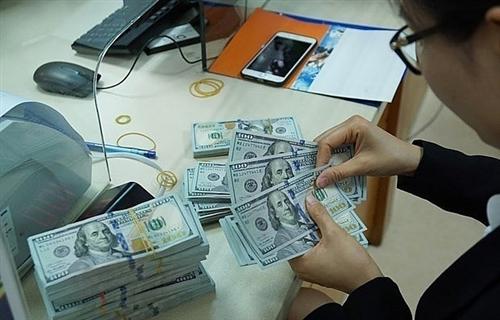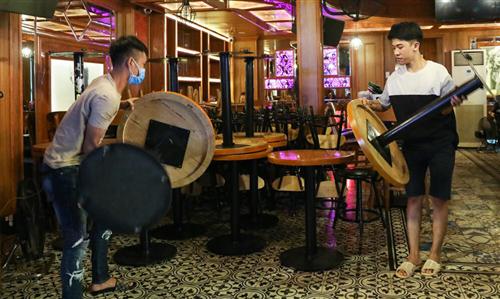Trade raises demand for stable VND
Trade raises demand for stable VND
Fears of the pandemic crippling corporate profits and diminishing the allure of risky assets have sent investors scramble for cash rather than other assets.
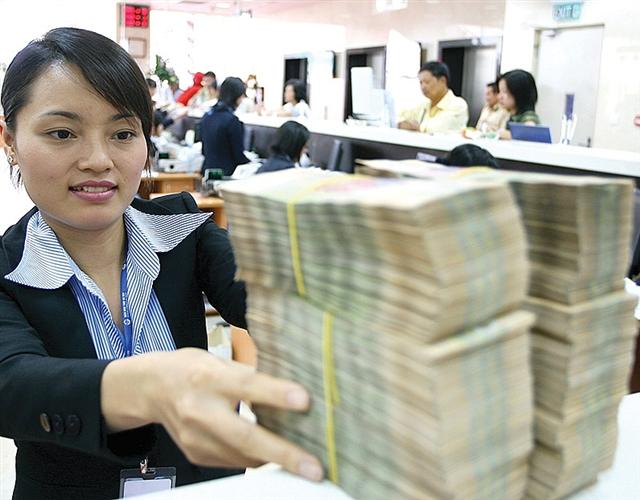
The balance between foreign currency supply and demand is currently stable, Photo: Le Toan
|
Last week, central rate and commercial banks’ exchange rate both increased slightly. The central rate gained VND40 to reach VND23,252/USD while the actual exchange rate quoted at commercial banks also surged by VND158 to VND23,372/USD.
The VND weakened when the US dollar index surged on the global market while the State Bank of Vietnam (SBV) adjusted a series of policy rates. Foreign investors’ withdrawing pressure in both stock and bond markets since the Lunar New Year (estimated at $500 million) has also put pressure on exchange rates. However, Vietnam achieved a trade surplus of $2.8 billion in the first quarter of this year.
“Vietnam recorded a trade surplus of $1.82 billion in the first two months of this year and continued to reach surplus of $880 million in March. The foreign exchange status has been maintained at a positive level while the legitimate demands for purchasing foreign currencies have been met promptly and fully,” said Pham Thanh Ha, director general of the Monetary Policy Department at the SBV. “With a net purchase of $20 million in 2019, the SBV has increased the nation’s foreign reserves to approximately $80 billion, which was six-fold higher than the figure from 2011.”
Therefore, the trade balance still recorded a surplus in USD, which possibly prevents the VND from a strong depreciation in the near future.
Researchers at Bao Viet Securities forecast that the VND will drop by 2-3 per cent in 2020.
During spikes, the SBV may increase the selling of foreign currencies. Previously, the central bank also lowered USD selling exchange rate by VND50-100/USD, compared to commercial banks. This move will support Vietnam during the US evaluation of its currency monitoring list.
When the Fed slashed its benchmark interest rate to near zero, the USD was anticipated to lose its appeal. Notwithstanding, in times of uncertainty a rush for cash shook the financial system, as investors hunkered down for a prolonged economic stall, taking the recent market turmoil into a new, more troubling liquidation phase. The demand for the dollar, and safe-haven assets in general, is running ahead of the Fed’s stimulus moves.
“Therefore, the greenback has surged against all currencies, as investors believed in the USD’s defensive nature as a safe haven,” economist Bui Quang Tin told VIR.
The ongoing health crisis has damaged other countries’ currencies, including a handful of important trade partners of Vietnam, such as South Korea, Thailand, and Singapore.
Although central banks have taken bolder steps to ward off any signs of weak economic growth by trimming interest rates or offering fiscal stimulus, those policies need time to impact the markets.
The USD/VND exchange rate has appreciated over recent days due to fluctuations in the international market. However, the balance between foreign currency supply and demand has not experienced any significant fluctuations.
“The SBV will continue to monitor closely the developments in the domestic and international markets, work out possible scenarios that may occur, regulate the key rate of VND versus USD in a flexible manner, and continue to use the measures and the monetary policy instruments consistently to stabilise the foreign exchange market,” noted Ha of the SBV.
A weaker domestic currency can be turned to advantage by promoting exports. However, currency stabilisation equals a stronger VND, making exports difficult. Looking at the bright side, foreigners pouring cash into Vietnam would become beneficiaries thanks to the stable VND.
As VIR previously reported, as of March 20, the total newly and additionally registered capital, capital contributed, and shares purchased by foreign investors were $8.55 billion, equaling 79 per cent of the same period in 2019, according to the Foreign Investment Agency under the Ministry of Planning and Investment. This means that their investment would bring a good return without steep depreciation.
Moreover, foreigners, particularly European companies, are eager to grasp new business and investment opportunities from the EU-Vietnam Free Trade Agreement and the EU-Vietnam Investment Protection Agreement. As a result, Vietnamese companies would become more attractive to major investment funds that are willing to pour millions of US dollars into Vietnamese businesses.
Deutsche Bank Vietnam chief country officer Hans-Dieter Holtzmann said, “The rise in FDI can be attributed to more foreign companies investing in supply chains in Vietnam to support intra-Asian trade. With supply chains facilitating more trade, we are clearly seeing more demand for both inbound and outbound VND payments.”





